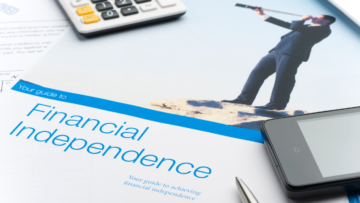Credit cards changed the way Americans think about debt. In 1981, the average retiree had only $2,100 in credit card debt. Today, we’ve almost quadrupled that amount, and the average retiree now owes about $8,248.
A Change in Perception
Debt used to come with a stigma. People believed you should do your best to be debt free, and retire without debt weighing on you. Now, 43% of baby boomers believe a credit card is a necessary “survival tool.” Credit card debt is considered normal. As much as 34% of older Americans are swiping their cards to cover basic living expenses such as groceries. They’re even relying on credit cards to help pay off mortgages.
This debt ontake can derail retirement. Credit card debt has transformed into a tarnish on the golden years. Traditionally, people tackled debt before they reached retirement, paying off with standing balances during their prime earning years. Now, about 50% of people over 50 years of age report being called by a debt collector. Furthermore, the National Foundation for Credit Counseling, centered around helping those struggling to pay off credit card debt, reported that a third of their clients were above age 55, and 15% were older than 65.
Is Debt Derailing Your Retirement?
The stress due to debt could be contributing to the rising number of older Americans forced into delaying retirement. According to the 2012 Retirement Confidence Survey, as many as 37% of those surveyed reported feeling they would be very likely to delay retirement until after 65 year of age.
Credit card debt is especially a threat to retirees living off of fixed income. Credit cards come with high interest rates, and the interest is not tax deductible as are some other kinds of debt. The interest causes the debt to grow over time, while the fixed income generates constant amounts which could cause the debt outgrow the income stream.
If you are saddled with credit card debt, you should work to pay it off before the debt becomes consuming. Revisit your financial plan, and see where you can take funds from to pay off the debt or check to see if your allocation will generate the income you need to become debt free.



